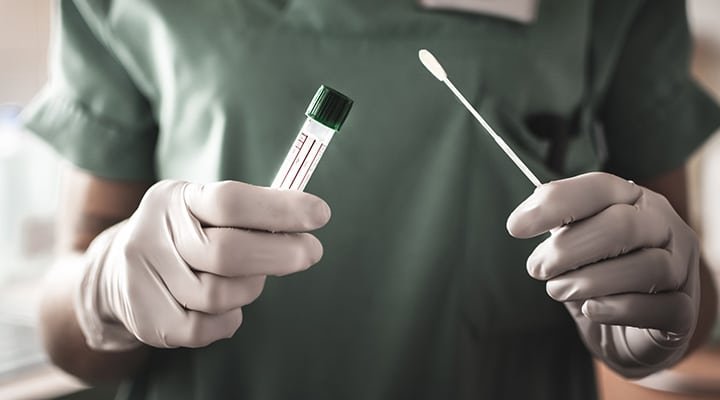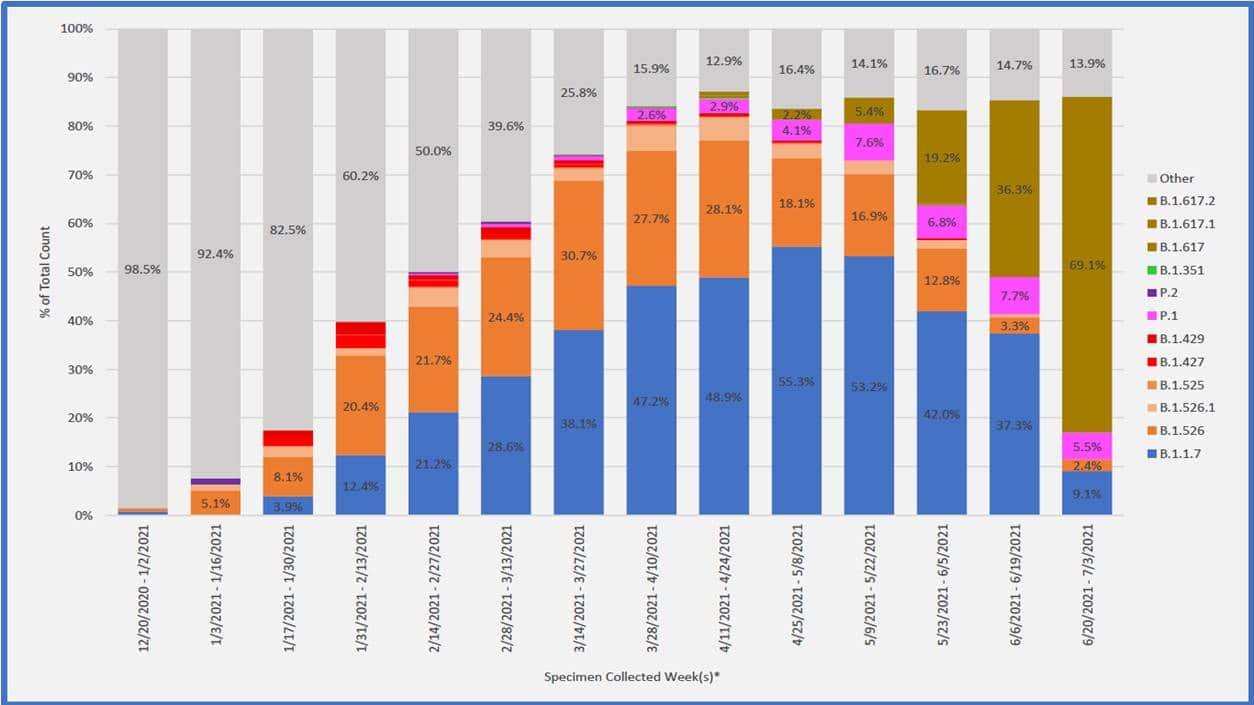They waited and hesitated. Finally, with Delta raging, Pakistani immigrants in New Jersey are now getting the shot.
By Mohsin Zaheer, Urdu News
This story was produced as part of a six-month COVID-19 reporting fellowship with NJ ethnic and community media organized by the Center for Cooperative Media at Montclair State University. It has been updated and edited from its original version.
Khadim Hussain, a Pakistani American businessman, waited months to get his vaccine. Even though he contracted COVID-19 last September, he had put off getting the vaccine because, he said, he wanted to “wait and see” first before making a decision.
But as the coronavirus cases have continued to rise across New Jersey, Hussain reasoned, there was no more waiting to be done. Last week, he finally decided to get the shot.
In the New Jersey and New York areas, at least, there are two groups of unvaccinated Pakistani Americans: those who still refute the effectiveness of the coronavirus vaccines and the other are those who say they are willing to get vaccinated but are procrastinating.
Though most evidence that many unvaccinated are from each of these groups is anecdotal, Hussain, a resident of Atlantic City, is believed to be among the thousands of Pakistani Americans who, admittedly, are vaccine procrastinators.
With more than 2,400 new confirmed cases in the state, exacerbated by the Delta variant, the fight against the coronavirus has been focused on people who are eligible for shots but have chosen not to get them, according to a report by The New York Times, regardless whether they are the most vulnerable to serious illness or hospitalization.
Unfortunately, these unvaccinated people are mostly like the ones to spread the coronavirus further.
“I have to be responsible for protecting myself, my family and community,” Hussain added, “and that’s why I got the shot.
Breakthrough infections
The prevalence of the Delta variant has urged more vaccine procrastinators to get the shot, according to Imani Oakley, a Democrat running for New Jersey’s 10th Congressional District.
“There are now more people who are showing up at COVID-19 testing sites in New Jersey,” she said. “I think people are realizing that one could be exposed to COVID-19 Delta variant— and those who are not vaccinated are at high risk.”
For some vaccinated Pakistani Americans, the surging Delta variant has made them more cautious. With breakthrough infections, many of them feel that they, too, are in danger.
“I learned from last year’s experience: you never know how quickly the Delta variant could spread,” said Faisal Shah, of Scotch Plains, NJ.
Shah was supposed to travel abroad. When he started hearing about those who have been vaccinated but still contracted the coronavirus, he decided to cancel his trip and stay in the United States.
“I do not want to take the risk,” he said, adding that he does not want to get stuck in a foreign country, if the Delta variant continues to spread.
From June 29 through July 12, a news analysis found that the number of COVID-19 cases among fully vaccinated people in New Jersey increased by more than 16 percent. The number of hospitalizations jumped by two-thirds and the number of deaths rose by 55 percent in the state, that analysis found.
Surging Delta variant
New Jersey’s vaccination rate has still not reached herd-immunity threshold, while the threats of the Delta variant looms large. The Delta variant has now become the most transmissible and dangerous strain, spreading rapidly across the state and United States.
As of August 20, some 5.4 million New Jerseyans have now been fully inoculated against COVID-19 — accounting for more than 70% of the state’s total population — but not all communities are equally protected.
According to Dr. David Adinaro, deputy commissioner for Public Health Services at the New Jersey Department of Health, the Delta variant has now become New Jersey’s most dominant strain and most dangerous, spreading rapidly across the state.
“On July 26, a state report showed that the Delta variant represented almost 75 percent of all COVID-19 strains in New Jersey,” Adinaro said. “Those who are not vaccinated at all—or vaccinated with only one dose—are at much higher risk of COVID-19,” Adinaro added.
The NJ Department of Health reports that Lakewood (47 percent) has the lowest COVID-19 vaccination rate among New Jersey communities of 10,000 residents or more, followed by Irvington (53 percent), East Orange (53 percent), Camden City (55 percent) and Willington (57 percent).
CDC officials say that the best way to protect people from the Delta variant is to get fully vaccinated.
“I don’t understand those who don’t want to be vaccinated,” said Azra Baig, a resident of South Brunswick, NJ. “While there are breakthrough infections, the coronavirus vaccines still guarantee safety and protection from hospitalization or death.”


